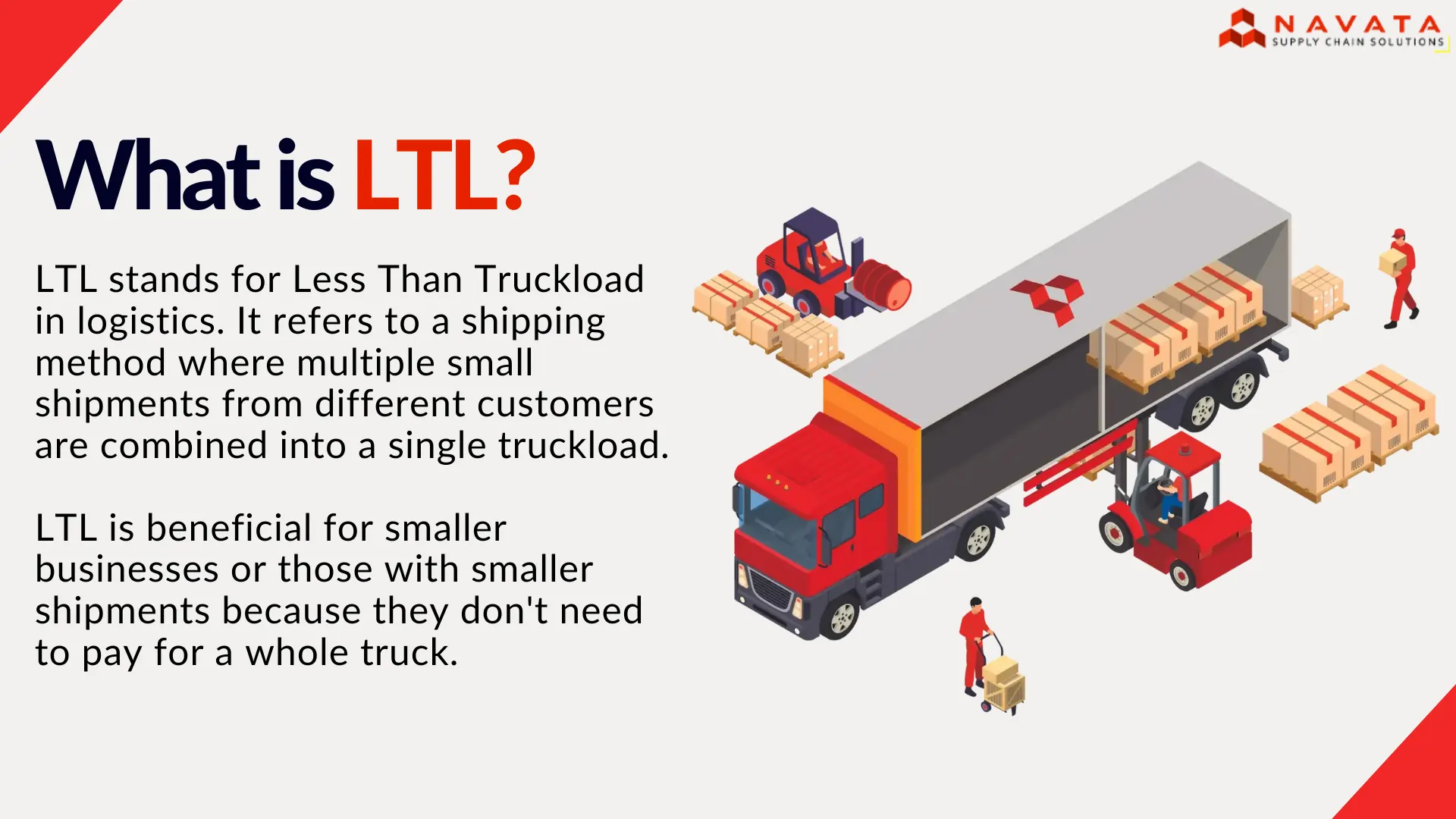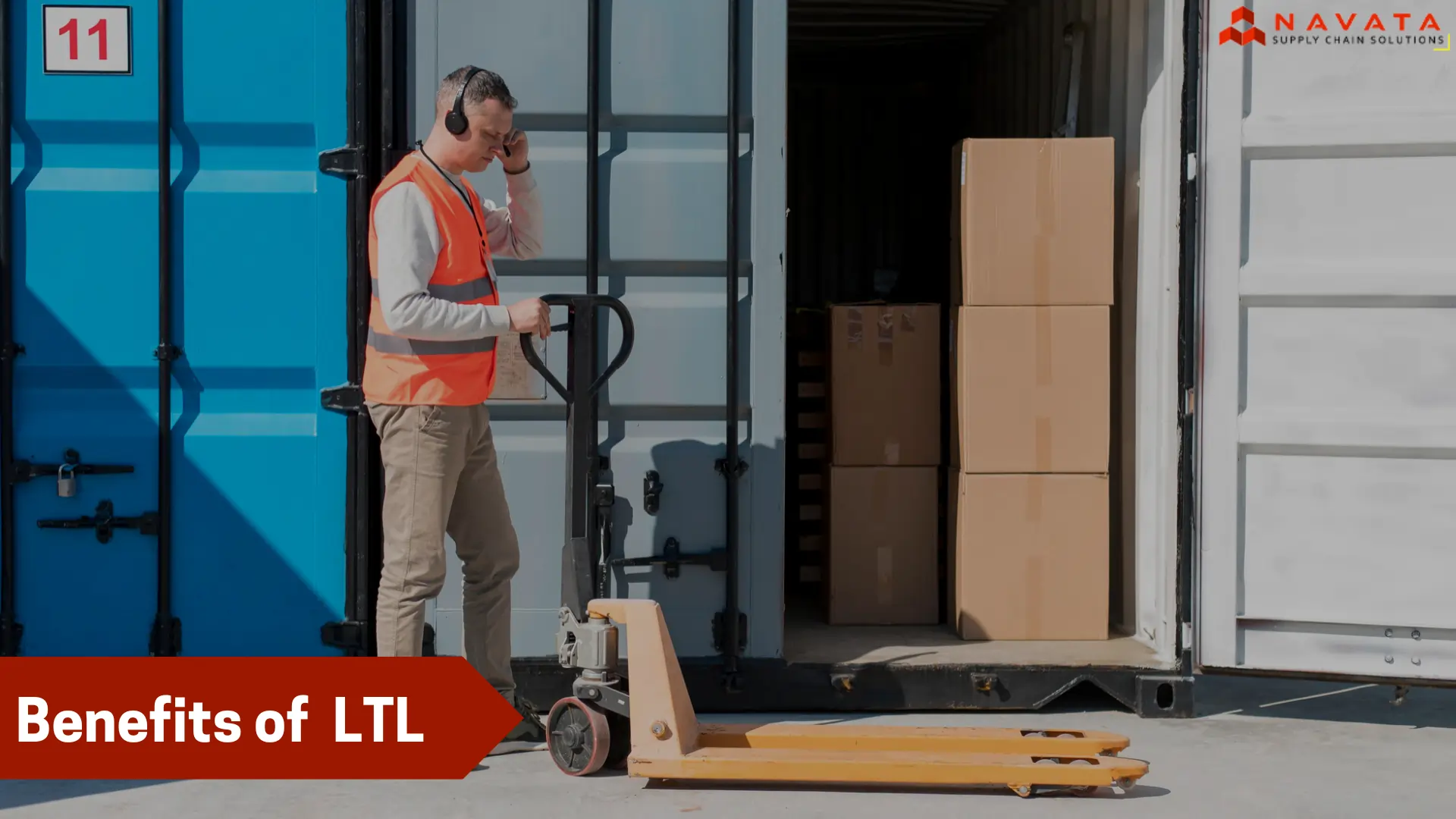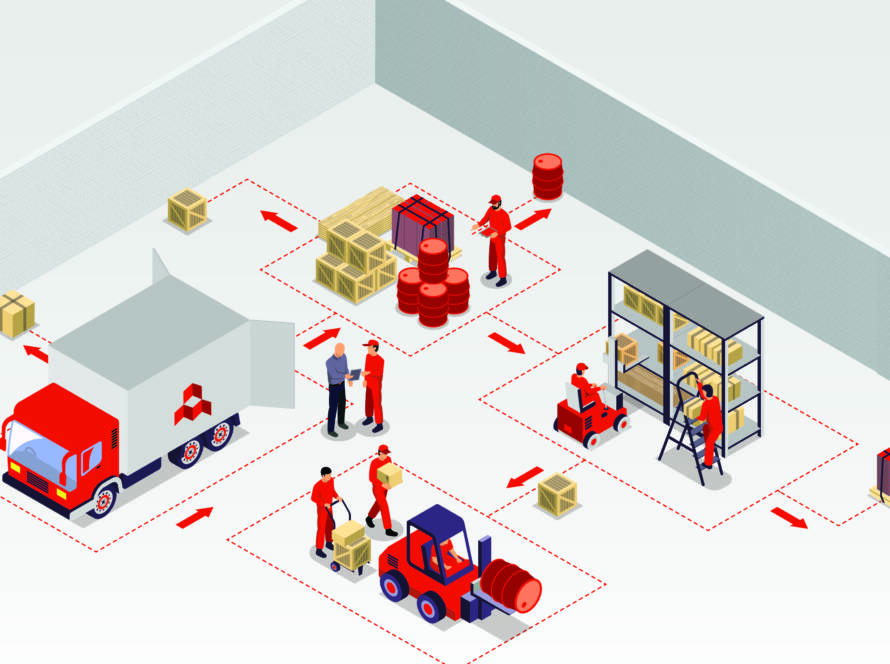What Is LTL Shipping (Less Than Truckload) ?
LTL stands for less than truckload and refers to a shipment that is either smaller or won’t require as much room to be stored as a full truckload. Depending on how much freight needs to be delivered, more than one shipment may be made of the consolidated freight, which will be shipped on a smaller vehicle.
The term LTL (less than truckload) describes the practice of shipping cargo from other consignees with your own. Comparatively speaking, the cost of an LTL truck is less than that of a full truckload of cargo. In logistics, less-than-full (LTL) transportation has several advantages, including shorter trip times, lower fuel expenses, and simpler route planning.

Leveraging LTL Shipping
LTL shipping can assist you with a lot of things, particularly if your business serves a large domestic area. The capacity to cut expenses and time will be crucial in order to improve your company’s operational efficiency. This benefit is particularly applicable when obtaining goods from manufacturers or suppliers, as you will see.
Additionally, it offers flexibility in terms of delivery and pickup times. Alternatively, you can arrange delivery times that coincide with standard business hours as opposed to holding out until late at night or early in the morning for a specific day’s pick-up.
Moreover, LTL trucking enables you to lower the carbon footprint associated with each delivery you make in a given day, which is appropriate for constructing a sustainable future because it takes into account the environmental impact of the daily actions that both individuals and organizations take. Retailers can move forward with their commercial operations on a greater scale by making these selections. More significantly, though, it sets an example for others to follow when examining the origins and transportation routes of goods, thereby benefiting all parties involved.

Benefits of LTL (Less Than Truckload)
Increase Delivery Visibility
When delivering tiny packages, (Less Than Truckload) cutting-edge technology offers better delivery visibility. This implies an improved ability to monitor the shipments. shipping companies could include accurate delivery time estimates, GPS tracking, and visibility. Additionally, the company could expedite delivery times. Since they only transport a small number at a time, there is less possibility that your package will be misplaced or stolen. Moreover, this approach is less expensive than using freight by the entire truckload.
Decrease Warehouse Space
By using (Less Than Truckload) shipment, warehouse space can be used more effectively. Purchasing orders don’t have to sit around waiting on freight if you ship out cargo quickly, making room for fresh stock. Consignees can buy in shorter cycles thanks to this agile method, which lowers their inventory levels. Additionally, it encourages a lean process flow in your warehouse, which maximizes productivity and optimizes operations.
Reduced Distribution Expenses
You can use less fuel, thanks to the advantages of LTL freight delivery, which could result in lower distribution costs. You can save money on transportation by doing this. Additionally, the most affordable solutions for delivery to remote locations and those that need to be sorted and loaded are offered by transportation companies.
Improved Customer Service
With (Less Than Truckload) freight shipment, you don’t have to worry about time delays or product damage, which can occur with other methods due to the significant danger of accidents and product damage during transportation. All shipments are tracked and handled with care. The loading and unloading process is also carefully monitored to ensure that your cargo is delivered on time and that the couriers handle it correctly. This helps to reduce the danger of your products being lost in transit during freight shipment.
Goods Safety
In less-than-truckload shipping, ensuring goods safety is paramount Including correct packaging, secure loading mechanisms, and weight limitations. Additionally, frequent vehicle maintenance and compliance with transportation standards are critical. Effective communication among shippers, carriers, and recipients improves overall safety measures. LTL shipping businesses prioritize these processes to protect the integrity of goods and reduce the risk of damage or loss.
Easier Tracking
The advantages of using a (Less Than Truckload) supplier give you improved tracking information and increased visibility into the status of your shipments. This provides comfort throughout the procedure and makes it simpler to anticipate potential shipment issues before they arise.
Cost-Effective
Compared to other shipping methods, LTL often has a cheaper cost per unit. Businesses that frequently send lesser quantities of goods but require them to reach their destination on schedule and undamaged can benefit most from this.
Adaptability
Because LTL freight shipment can be sent by truck, train, or boat, depending on what is most expedient, it offers flexibility. Because it is more affordable and flexible than full truckload shipment, LTL freight shipping is growing in popularity. It gives you the freedom to adjust your transport routes in response to demand. Carriers may choose not to comply with requests to use roads with heavy traffic since only specific locations or regions provide service via them. This gives you greater control over where shipments are routed when using LTL services.
Eco-Friendly
Climate change and carbon footprint reduction are serious issues in the transportation and trucking industries. If you want to be more environmentally conscious in your business, LTL is a wonderful solution. The LTL shipping method decreases the quantity of gasoline and vehicles required for shipment. It also enables transporters to identify the optimal routes to use when delivering their goods, saving time and fuel.
Better Reliability
It is simpler to arrange LTL shipments because they travel restricted routes and only make stops that are absolutely essential. For shippers who regularly have small shipments that they can combine with other shipments to attain a higher level of reliability, LTL freight is therefore perfect.
Broaden Options
You can frequently choose from more practical choices with LTL shipment, such as liftgate services, interior delivery, or residential pickup. These choices can significantly simplify the shipping procedure for small and medium-sized enterprises.
You Might Also Like To Read: LTL VS PTL
Streamline Your Shipments with LTL: Contact Us to Optimize Your Logistics Today!
Conclusion
Less Than Truckload, or LTL, shipping is a wise option for companies trying to optimize their logistical processes. Compared to shipping entire truckloads, it entails transporting smaller loads, which can save you money and time. By enabling you to send smaller quantities more frequently, LTL helps you better manage your inventory by eliminating the need for huge warehouses. Furthermore, LTL carriers use cutting-edge tracking technology, which improves your visibility into shipments and guarantees on-time and safe delivery.
This freedom also applies to delivery choices; small and medium-sized enterprises may ship more easily with the help of services like liftgate and interior delivery. Adopting LTL shipping can help you contribute to a more sustainable future by lowering your carbon footprint and increasing operational efficiency.
Thanks For Reading: Benefits of Using LTL Less Than Truckload
Powered By 360Presence
FAQ
What is benefit of LTL?
LTL (Less Than Truckload) shipping allows businesses to share transportation costs by combining shipments. It reduces expenses, enhances delivery flexibility, and improves operational efficiency. This method is especially useful for businesses serving large domestic areas and seeking sustainable transportation solutions.
How can LTL shipping reduce distribution expenses?
LTL shipping reduces fuel usage by combining smaller shipments, leading to lower transportation costs. It offers affordable delivery options for remote locations and optimizes loading processes, which helps businesses save money on distribution.
How does LTL shipping ensure goods safety?
LTL shipping prioritizes goods safety through correct packaging, secure loading mechanisms, and weight limits. Regular vehicle maintenance and compliance with transportation standards, along with effective communication
What environmental benefits does LTL shipping provide?
LTL shipping reduces carbon footprints by decreasing the number of vehicles and fuel used for shipments.
In what way does LTL shipping decrease warehouse space?
It allows for more efficient use of warehouse space by enabling quicker shipment of goods. This reduces the need for long-term storage, supports a lean process flow, and optimizes inventory management, freeing up space for new stock.


3 Comments